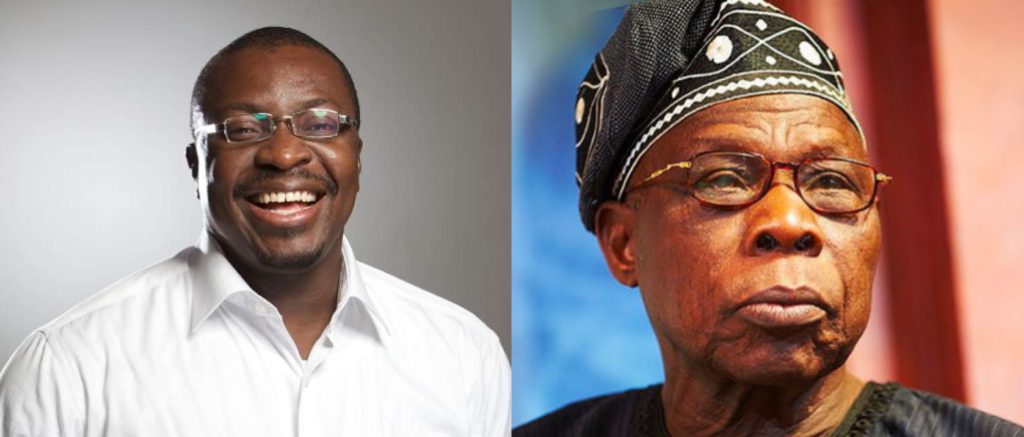- Alibaba, a veteran comedian, has shared a conversation with former Nigerian President Olusegun Obasanjo.
- The Outside the Box Podcast revealed a cynical playbook for Nigeria’s presidency, as revealed during a recent episode.

Veteran Nigerian comedian Atunyota Akpobome, popularly known as Alibaba, has opened up about a revealing conversation he had with former President Olusegun Obasanjo, in which the ex-leader allegedly outlined what it takes to win a presidential election in Nigeria.
Speaking on the Outside the Box Podcast, Alibaba recounted the striking details of their exchange, describing it as a “political masterclass” that exposed the depth of influence, power dynamics, and strategic alliances required for any serious contender.
During the podcast, Alibaba quoted Obasanjo as saying, “Ali, I’m happy you’re catching up with politics but you still have a lot to learn, like how you get governors and presidents elected.”
According to Alibaba, Obasanjo emphasized that securing the support of seven key governors—particularly from Lagos, Bayelsa, Delta, Rivers, Kano, Kaduna—and the Central Bank of Nigeria governor, was vital. While some states may not be wealthy, he said they are crucial for voter numbers.
Alibaba also quoted the ex-president as saying that to truly solidify political dominance, one must secure influence over 44 major senatorial districts and award government contracts early in their tenure to build political loyalty. These contracts, Obasanjo allegedly explained, act as leverage when election season returns: “You simply ask, do you want this contract to continue?”
In a more controversial segment of the interview, Alibaba said Obasanjo advised the suspension of corruption cases against wealthy former governors, suggesting they could be valuable allies with deep financial resources.
The discussion also touched on how some state governors manage their federal allocations and internally generated revenues, allegedly stockpiling funds in ways that avoid scrutiny from anti-graft agencies.
Obasanjo, according to Alibaba, advised cultivating support from both local and international entities—specifically powerful nations like the U.S. or China, due to their business interests in Nigeria. Furthermore, backing from grassroots groups such as the National Association of Nigerian Students (NANS), market women, transport unions, and religious leaders was deemed crucial.
Another strategic layer involved early infiltration of opposition parties, securing loyalty from party delegates through personal favors—like jobs, shops, or religious sponsorships—long before congresses or primaries take place.
Alibaba concluded with the assertion that control over electoral bodies, media platforms, legal teams, and traditional institutions also formed key parts of the power equation.
The explosive revelations have sparked debate online, with many viewers questioning the ethical implications of such political maneuvering and how it reflects on Nigeria’s democratic process.
